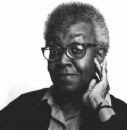Great conversation in class today.
In light of our discussion about the lake and the field, consider the following:
In "Notes", O'Brien says that by leaving Kiowa's death out of a previous version of "Speaking of Courage", he had "lost the natural counterpoint between the lake and the field. A metaphoric unity was broken."
What is the lake a metaphor for? What is the field a metaphor for? How are the lake and the field connected? What is this connection a metaphor for? What idea does this metaphor suggest?
Answer all parts of this question, but don't write a novel. Keep it clear. Mind your grammar, spelling, punctuation, etc.. and feel free to respond appropriately to other posts.
Wednesday, December 10, 2008
Subscribe to:
Post Comments (Atom)
















6 comments:
I think the lake was a metaphor for, the way people view him and the contrast of how he really feels.The field in my opinion represents his own memories from the war field, that keep coming to his head.
The lake and field are both connected i think in the sense that, since both settings where from his past before the war, after the war he felt as though they were the building blocks to him joining the war in the first place.This metaphor suggests that maybe if he would have grown up differently he wouldn't have to deal with what he is now, after the war.
--Michelle C. <3
Tim O'Brien is comparing the lake and the field to Norman Bowker. Both the field and lake look dirty and smell awful. Also both of his friend died, one at a lake and the other at the field.The lake is describe as not a good place to swim at, Norman friend, Max, drowned, and the lake has algae. At the same time it looks beautiful. The field is describe as a swampy field, muddy, smell like a village toilet, and Norman friend, Kiowa, got buried under the mud. The connection between Norman, the lake and the field. Saying that Norman was a good person, thinks differently. After war he think a bad way. Suck in his past and thinks bad because of war. Before war he was more of a social type then after war. Now he does not talk to no one and commits suicide. Basically I trying to say the lake and the field is Norman.
I think that the lake is a metaphor for all of the unforgettable memories Norman Bowker has. The field is a metaphor for an unpreventable fight for survival in which led to the death of Kiowa. Therefore, the connection between the two is death. I say this because at the lake, which Norman visits a lot, Norman thinks back at the time his friend, Max Arnold, drowned in the lake. As for the sewage field, its simply connected to death due to of the death of Kiowa.
I feel that the lake and field are of course metaphorically connected. The lake is a metaphor of how he lost his best friend before the war. The lake is also flat symbolizing that Norman Bowker's was life boring. Now the field is a metaphor of the war and how smelling the situation is. Now in both places there is nasty sewage mud contaminating them. In my opinion that mud represents the deaths of Kiowa and Max (whom were both very close friends to him). I feel this because both the lake and the field are covered in nasty sewege mud. The lake and field are connected because they both play a really big part in Kiowas life. The lake represents his emotions and how he is stuck with the sad memories of Max's death and the knowing he has nobody to really talk to about his feelings. Then the field is connected because it represents his action during the war and he feels that Kiowas death was his fault and his how the memory is stuck in his head.
-Angel L.
It seems the lake and field are being contrasted. The lake represents beauty but is a reflection of death. While the field which seems filthy and dirty, is alive with activities.
Andre S.
The lake is a metaphor for being calm, controllable and stagnant. While the field to Bowker was uncontrollable and chaotic he never really knew what could happen out in the field. The field and the lake are connected in the way that the are both a metaphor for death because Bowker lost a close friend in Max at the lake and Kiowa at the field. This metaphor suggest that Bowker will never get away from his past in the war because he will always be reminded by something in the present.
Post a Comment